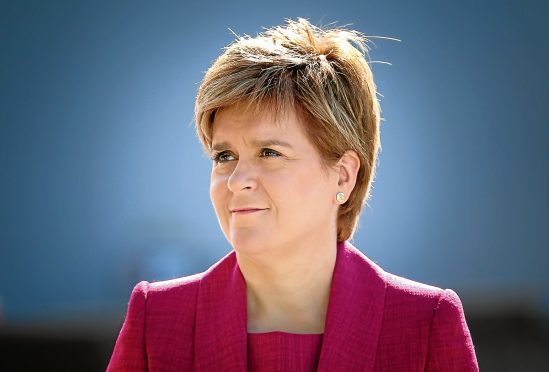Nicola Sturgeon had much to ponder last night as she put the finishing touches to her keynote speech to the SNP conference in Aberdeen.
Weighing most heavily on the minds of the first minister and her advisers will have been the words to use and the tone to strike on the almost intertwined issues of Brexit and a second independence referendum.
After all, they will be the sections of her speech that are given the most attention among party delegates in the conference hall, and in the news bulletins tonight and tomorrow morning.
Both issues are among the most significant to face a generation of politicians in Britain since the Second World War, and could define the legacy of Ms Sturgeon and the SNP.
But on her visit to the north-east, the Nationalist leader may well have been reminded of another problem which dwarfs Brexit and Scottish independence in global importance, and which may soon also require difficult decisions from the first minister.
It is not that Ms Sturgeon has been ignoring climate change, far from it.
Indeed, in her last conference address in spring this year she declared a “climate emergency”.
She has also commended herself and her party for showing “global leadership” by introducing “the toughest framework of statutory targets of any country in the world”, including Scotland becoming a “net zero” society by 2045.
The rhetoric, targets and recent policy announcements from Scottish ministers have all put the issue at the top of their agenda, and no doubt more will be said today.
In many ways it is an entirely natural and comfortable position for Ms Sturgeon and a party that views itself as progressive and forward-thinking.
It can also be seen as politically astute, given that millions of young people are becoming politically engaged in the era of Greta Thunberg and school climate strikes.
However, the course taken by Ms Sturgeon has left her facing a dilemma.
It is this: How do the SNP and their leadership square their pretensions to lead the world in their response to the climate emergency while maintaining their historic association with the oil and gas industry, considered the number one cause of the problem by many climate campaigners?
For its part, the sector itself is aware of its PR problem, and has recently produced its own “road map” to help the nation reach net zero emissions.
And the first minister is clearly unlikely to sever ties with the industry any time soon.
After all, oil and gas remains a cornerstone of the Scottish economy, and the North Sea has been a catalyst for much of the SNP’s growth over the decades on its journey to government.
However, Ms Sturgeon is aware the link has left her open to accusations of hypocrisy, and there is now a sizable number within the SNP and the wider independence movement who appear to want to consign their support for oil and gas to the past.
It is perhaps fortunate for the first minister that powers over offshore licensing and regulation remain reserved to Westminster.
She would be under even greater pressure to address the issue if they lay at Holyrood, and potentially even to follow the lead of Denmark’s new Social Democratic government, which signalled last week that it could end new North Sea exploration.
But having characterised her government as a world leader in the climate change battle, her position on the future of the North Sea is under increasing scrutiny nonetheless.
The growing tension between the government’s green credentials and its business-friendly policies has already been demonstrated by its decision to abandon plans to slash tax on passenger flights, as well as its backing for a workplace parking levy.
However, any fundamental change to its historic support for the offshore industry would be far more significant.
It would also have the potential to create a major political headache for the Nationalists in the north-east, where thousands of people still work in the sector, and where the party lost most ground at the last UK elections.
Ms Sturgeon moved her position slightly in her “programme for government” speech to MSPs last month.
She said she knew, and understood, why many climate change campaigners argue that part of Scotland’s response to the climate emergency should be the “immediate withdrawal of support for oil and gas”.
And while the first minister would not go that far, she said that “our support for oil and gas will now be conditional”, with the condition being that it must move towards a “sustainable energy transition”.
It was a minor change, but not the tone or language you would have heard from many SNP politicians more than a year or two ago.
Indeed, on a trip to Aberdeen in 2015, Ms Sturgeon herself described oil and gas as a “fantastic asset for Scotland and will continue to be so for decades to come”.
At a party conference a couple of years earlier, John Swinney lambasted unionists for “pretending that oil is a problem instead of the opportunity that it truly represents”.
It is now a familiar line of attack in the independence debate.
But today the debate over the North Sea is no longer just focused on the economics alone.
And politically, it may no longer represent an opportunity for the SNP, but a problem.
